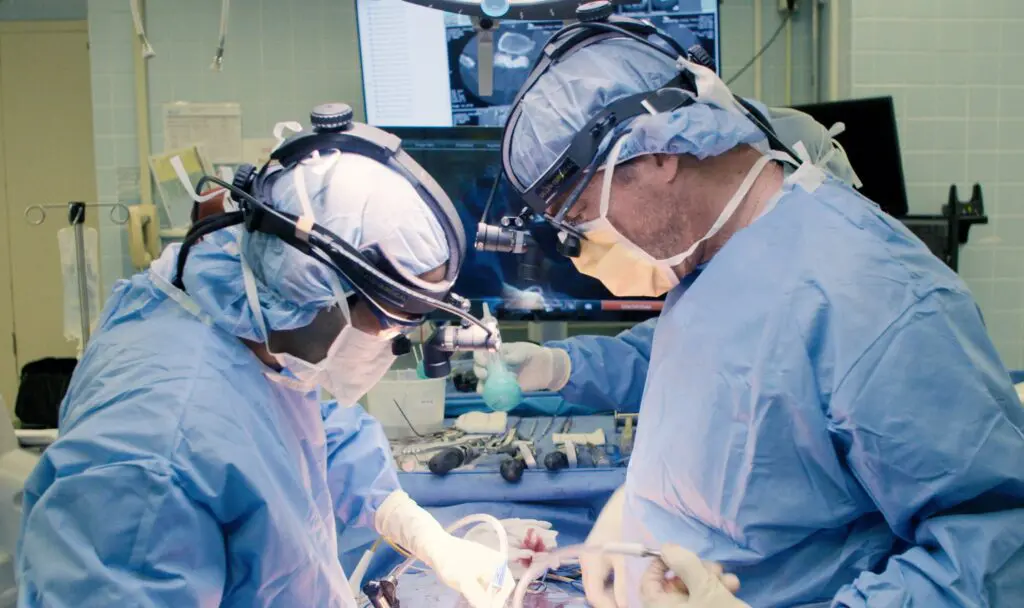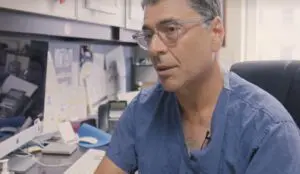Summary
Although plenty of medical terminology is thrown at the viewer, it hardly even matters. Lenox Hill is not about the complexities of a hospital, it’s about the people.
Netflix documentary series Lenox Hill will be released on the platform on June 10, 2020.
It’s easy to expect Lenox Hill to be a straight-shooting factual documentary on medical procedures and case studies of a plethora of patients. The Netflix series is abundantly the opposite; it is one of the most touching documentary series’ of the year and it will find a place in many hearts, especially during this time in modern medicine.
Lenox Hill primarily follows four medical professionals at Lenox Hill hospital ranging from neurosurgery, ER and Obstetrics and Gynecology. The Netflix series intimately follows their life in the medical profession, coupled with their personal standing in the world. Lenox Hill enjoys the notion of perspective; how these doctors routinely take a step back and think about their place at that moment.
There’s plenty of reality to soak in during the eight-chapter series that follows a logical timeline with each episode; there’s plenty of footage of brain surgery, scenes of removing tumors, and wonderful moments of babies being born. Lenox Hill is not for the faint-hearted. The camera is honest to the audience and the participants; the shots are invasive but the doctors and patients are so resoundingly natural that it feels like the production equipment isn’t there.
Doubtlessly, Lenox Hill is an intimate experience for the audience. The patients receiving treatments, chiefly on the neurosurgery side, involves many moments of cherished joy but equally, the Netflix series brings the unthinkable tragic moments. It’s easy to view medical professionals as desensitized to life and death scenarios but this series puts a pin in that notion — outside of surgery, away from the bedside, there’s plenty of deliberating and sad moments that sit in their brain; they just don’t have time to muddy their emotions. The docuseries encapsulates that process, essentially highlighting that they are humans doing their job — treating humans.
Although plenty of medical terminology is thrown at the viewer, it hardly even matters. Lenox Hill is not about the complexities of a hospital, it’s about the people. The Netflix series’ charming approach veers it more on the side of Reality TV than a documentary. Its efforts to bring a touching reflection of working lives in a hospital is treasured.
Netflix’s Lenox Hill will be one of the best documentary series’ this year with ease.
Mentions
Mirtha Macri, DO — Emergency Medicine
Amanda Little-Richardson, MD — Chief Resident, Obstetrics and Gynecology
David Langer, MD — Chair, Neurosurgery
John Boockvar, MD — Vice Chair, Neurosurgery
Rafael Ortiz, MD — Chief of Neuroendovascular Neurosurgery
Sherese Fralin, NP — Director of Advanced Practice Nursing
Eran Bornstein, MD — Vice Chair of Obstetrics
Mitchell Levine, MD — Director of Spine Surgery
Jill Kalman, MD — Executive Director, Lenox Hill Hospital
Nancy Lipsitz, MD — Anesthesiology
Amanda Amarin, Manager — External, Relations, Neurosciences
Kenneth Court, Director of IT — Neurosurgery
Griffin Baum, MD — Neurosurgeon




